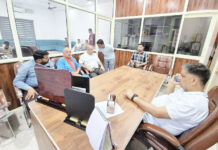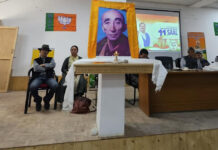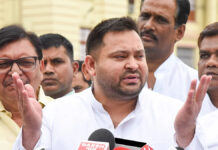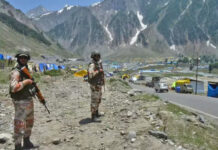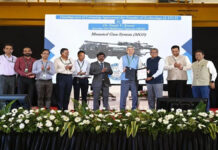DOGRA HERALD BUREAU
NEW DELHI, Feb 9
The Rajya Sabha today passed ‘The Public Examinations (Prevention of Unfair Means) Bill, 2024’ aimed at curbing leaks, malpractices as well as organised malpractices in recruitment examinations like UPSC, SSC etc and entrance tests such as NEET, JEE, and CUET. The Bill, which has already been passed by the Lok Sabha, will now become a law after the issue of notification.
Initiating the debate on the Bill, Union Minister Incharge DoPT, Dr Jitendra Singh said, “the Public Exams Bill, which is possibly the first of its kind in the history of India’s Parliament, is dedicated to the youth of India”.
“Prevention of Unfair Means Bill, 2024” will also cover entrance examinations held by the Union Public Service Commission, the Staff Selection Commission, the Railways, banking recruitment examinations and all computer-based examinations conducted by the National Testing Agency.
The Bill has already been passed by the Lok Sabha after an extensive discussion on 6th February 2024.
“We have a stake in the country’s youth, who form the majority 70% of the country’s population. Their contribution is imperative for nation-building over the next two decades in the making of Prime Minister Narendra Modi’s Viksit Bharat,” he said.
Stating that the Bill is the first of its kind in the history of Indian Parliament, Dr Jitendra Singh this legislation seeks to address a very recent phenomenon affecting the youth. Government headed by Prime Minister Narendra Modi has always placed youth at a very high priority, he said.
Participating in the debate, Senior Congress leader Digvijay Singh said, the Bill deals with a subject in the Concurrent List and called for its extension to States. Dr Jitendra Singh countered Digvijay Singh by reminding him that at one time Education used to be a part of State list and the then Congress Govt had changed it over to Concurrent list.
Speaking on the issue, Prakash Javadekar, BJP said that the National Testing Agency was a crucial step in the direction to check malpractices in exams.
P. Wilson, DMK; Sandeep Kumar Pathak, AAP; Muzibulla Khan, BJD; Dr V. Sivadasan, CPI(M); Dr Amee Yajnik, Congress; Dr Dinesh Sharma, BJP; Sandosh Kumar P., CPI & Dr Fauzia Khan, NCP also participated in the debate.
Replying to the debate, Dr Jitendra Singh said the Bill will ensure more transparency and time-bound selection process and provide level-playing field. Government will encourage the States to adopt the Bill.
Dr Jitendra Singh said, in the last ten years of Prime Minister Modi’s leadership, India’s economy has gone “from Fragile 5 to Top 5”. In the Global Innovation Index, we ranked 81 in 2014, we have jumped 41 places, today we are No. 40 in the world, he said.
Dr Jitendra Singh said, India today has the 3rd largest Startup Ecosystem globally. From just about 350 StartUps in the year 2014, after PM Modi gave the clarion call ‘StartUp India, Stand Up India’ from the ramparts of the Red Fort in his Independence Day address and rolled out the special StartUp scheme in 2016, today we have over 1,30,000 Startups, he said.
Dr Jitendra Singh said, four-five years back, we had just one Startup in the Space sector, today we have 190 private Space Startups after opening up of the sector. There has been an investment of over Rs.1,000 crore by private Space Startups in the current financial year from April to December 2023, he said.
The S&T Minister said India today is ranked in the top 5 Manufacturing countries of the world. In Biotech, we had just 50 Startups, today we have 6,000 BioTech Startups, he said.
Dr Jitendra Singh said, the Modi Government has initiated several youth-centric provisions and schemes in the last ten years, such as ensuring transparency and providing equal opportunity and level-playing field in recruitments and higher studies.
Dr Jitendra Singh said, PM Modi took a major initiative in 2014 by scrapping the rule of attestation of documents by a Gazetted Officer and introducing self-attestation, saying that we have trust in our own youth. Later, interviews were scrapped in Government recruitment and higher education to curb favouritism and nepotism.
The DoPT Minister said, transparency and fairness has also been ensured by introducing online exams by UPSC, SSC and other recruitment agencies and the entire selection process has been reduced from one-to-two years to 6-7 months. With the vision and direction of PM Modi, the process of Rozgar Melas was introduced so that vacancies could be filled in bulk, – 50,000 to 60,000 (and even) 1 lakh appointment letters being issued together, – 45 stations across the country getting connected.
“The level of the merit of the new appointees has gone up,” he said.
“The future of our youth up to 40 years of age, who comprise 70% of our population, is at stake, who are stakeholders in the Viksit Bharat of 2047,” he said.




